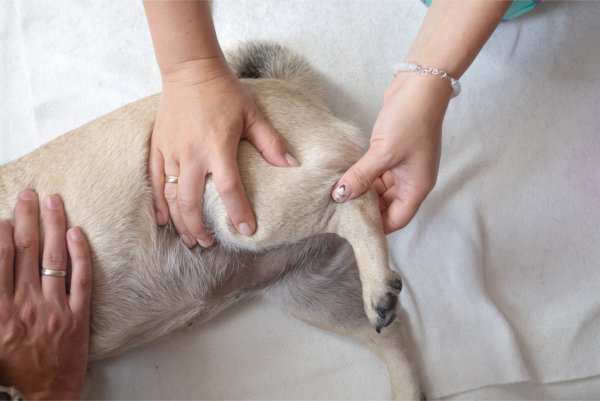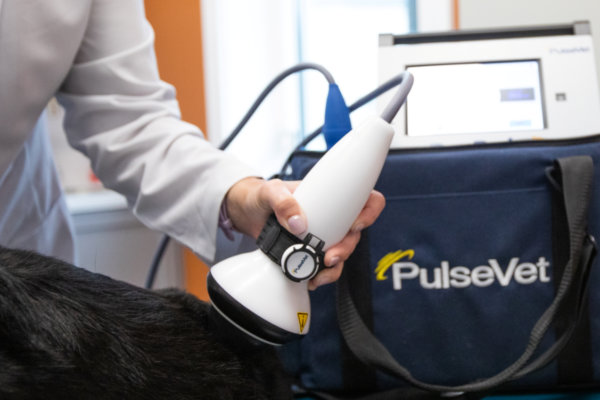Vasectomy for Dogs
An Alternative to Castration
When people think about desexing male dogs, the procedure that usually comes to mind is castration, where the testicles are removed. While this is the most common approach, it’s not the only option. A vasectomy offers a different path, one that prevents reproduction while preserving a dog’s natural hormones. At The Dog Mobility Clinic in Seymour, we believe pet owners deserve to understand all their choices when it comes to their dog’s health and wellbeing.
What exactly is a vasectomy?
A vasectomy is a straightforward surgery in which the tubes that carry sperm (the vas deferens) are sealed or cut. The testicles remain in place, which means testosterone is still produced. This has some important consequences: your dog can no longer sire puppies, but his hormone levels – and the behaviours and physical traits that come with them – stay largely the same.
How does it compare to castration?
Here are the main differences:
- Castration removes the testicles, which stops sperm production and testosterone. This can influence behaviour (such as roaming or marking) and lowers the risk of testicular disease.
- Vasectomy stops the dog from fathering puppies but leaves testosterone production intact. The benefits of hormones, such as muscle development, bone strength, and coat quality – continue, but so do hormone-driven behaviours.
Both procedures are done under general anaesthetic and are considered safe in experienced hands.
What we know so far
Research in recent years has looked at how dogs fare after castration, vasectomy, or remaining entire. Some of the findings suggest that preserving natural hormone levels may play a role in reducing the likelihood of certain joint problems or delaying the onset of some cancers. Behavioural outcomes are mixed: castration may reduce behaviours linked to testosterone, but it doesn’t always resolve them and can sometimes introduce new challenges such as anxiety.
For some owners, the decision comes down to priorities:
- Preventing accidental litters without altering their dog’s hormones
- Preserving natural drive and energy for working or sporting dogs
- Managing breed-related health concerns where early hormone removal might increase risks
Points to consider
- Hormone-driven behaviours may persist. A vasectomised male will still show interest in females in season and may continue marking or mounting. Owners need to be comfortable managing these behaviours.
- Reproductive diseases remain possible. Because the testicles are still present, conditions such as testicular cancer or prostate enlargement remain a risk.
- Access matters. Vasectomy is less widely available than castration, so not every veterinary clinic offers it.
Recovery and aftercare
Vasectomy is a relatively minor surgery. Dogs generally go home the same day and recover quickly, with stitches removed in 10–14 days. Usual post-surgical care applies: restrict rough play, monitor the incision, and follow your vet’s advice about exercise and pain relief. For around three weeks after the procedure, males should be kept away from females in heat, as sperm already stored in the system may remain active for a short time.
Making the right decision
Choosing between vasectomy and castration is not about one being “better” than the other – it’s about what suits your dog, your household, and your goals. Factors such as breed, age, lifestyle, health history, and behaviour all play a role. A thoughtful discussion with your vet will help weigh the pros and cons.

Our perspective at The Dog Mobility Clinic
At The Dog Mobility Clinic in Seymour, our focus is always on your dog’s long-term health, mobility, and quality of life.
We are pleased to offer vasectomy as an option for families who want reproductive control without removing hormones.
During a consultation, we’ll talk through your dog’s health and behaviour, outline the differences between castration and vasectomy, and help you make a decision with confidence.
Thinking about vasectomy for your dog?
If you’d like to explore whether vasectomy might be the right fit, we invite you to book a consultation with our team. Together, we’ll tailor a plan that reflects your dog’s needs and your priorities as an owner.
📍 The Dog Mobility Clinic, Seymour
📞 Contact us today to learn more or schedule an appointment.





